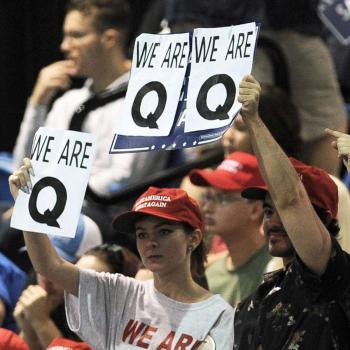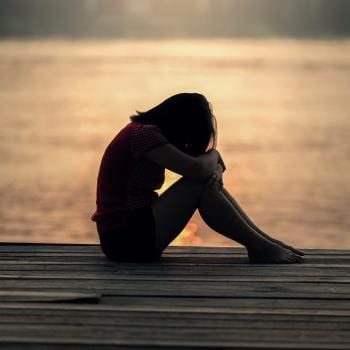Last week I wrote about prejudice against children (which some scholars have termed “childism”). Many commenters focused on conservatives who believe in spanking children and see teenage rebellion as something to be eradicated, and I was indeed talking about this group. This wasn’t the only group I was talking about, though. In response to commenters’ focus on conservatives, reader Monala had this to say.
To be fair, though, some of the worst childist comments I’ve heard have come from people on the left. I understand some of their frustration: they’ve chosen to be childfree* and resent some of the privileges of parents and the presumption that something is wrong with them for choosing not to be parents. However, they take out their attitudes on the wrong people—the kids, rather than the adults making these presumptions.
* Of course, many childfree people are not like this. I know many who are great with kids when they’re around them, and others who are very accepting of children in their presence.
I’m a graduate student living in a progressive college town. In my day to day life, I rarely run into prejudice against children from the right. Instead, I encounter it from the left. Reader Hth expounded on this further:
And as a childless person (I hate the smug term “childfree”—I’m not *free of* children, I just don’t happen to have any), I have to say that I’ve been privy to plenty of conversations among my childless friends that really are ugly, in terms of judging people for bringing children, well, anywhere on Earth that is not specifically a children’s event. Guys, a bar is “adults only” space. Most public spaces are just spaces for humans, of which a certain percentage are children. It is a ridiculous assumption that adults are somehow entitled to be insulated from the presence of children at all times, and if they aren’t, someone is infringing on their rights. Even if you don’t happen to like being around kids, you know what? The world is not your Twitter account, to be edited to suit your exact preferences. Sometimes if a family or a community is gathering, you’ll be in the presence of people you don’t personally care for. *You are the grownup.* You need to manage your own emotions about that.
Neither I nor Monala nor Hth are suggesting that every adult who chooses not to have children is somehow prejudiced against children. On the contrary! The idea that adults should be required to have children whether they want them or not has extremely negative repercussions for children (as well as for adults forced to raise children they don’t want), and plenty of people who choose not to have children either invest in other people’s children (their nieces and nephews, their friends’ children, etc.) or choose not to have children or invest in individual children but harbor no prejudice against children.
Reader Hth described the term “childfree” as “smug,” but reader Ruana objected:
The term ‘childfree’ was invented to differentiate between people who want or intend to have children, and those who have decided never to. ‘Childless’ can imply that the attached individual considers their status a problem; ‘childfree’ makes it clear that they do not. I am childfree, not childless. If you think me smug, feel free to suggest an alternative.
I’ll be honest: I don’t like the term childfree. Part of it is a gut reaction—I’ve run upon way too many people who use the term, in real life or online, in a smug way that often smacks of prejudice against children. But it’s more than that: The use of the word “free” suggests that those with children are somehow not free, and I object to that characterization. Still, I do understand why people use the word childfree. Those who claim the label are often fed up with living in a world where they are constantly pummeled with the expectation that they will have children. They’re tired of people making them feel like something is wrong with them. They’re asked when they plan to have children, and if they say they don’t, they’re asked why—but no one ever asks a parent why they have chosen to have children. Claiming the label childfree can, in this context, be empowering, and while I don’t like the term I get that.
For the record, I don’t like the term childless either. For one thing, it’s overly broad, including everyone who doesn’t have a child for any reason (they could plan on having kids in the future, have infertility problems, or have decided not to have kids, but the label applies all the same). For another thing, it suggests that someone who doesn’t have a child is missing something. In some cases, this may be true—people with infertility troubles may feel very very childless. But for those who have chosen to not have children, or have even simply decided to not have children until some time in the future, there isn’t something missing. People can live rich and fulfilling lives without ever having children. The term also helps promote a culture where childbearing and child-rearing is expected to be universal, which, as I have said before, has negative repercussions for both children’s and adults well-being.
This all said, I don’t really have any replacement suggestions for “childfree” or “childless.” Personally, I tend to just refer to “people who don’t have kids” or “people who have chosen not to have kids” rather than using specific labels.
Anyway, I want to give a fuller picture of the sort of prejudice I’m talking about. When people who have chosen to have children tell those around them how glad they are they don’t have any “squalling disgusting brats,” that’s prejudice. When people who have chosen not to have children refer to parents as “breeders” and children as “spawn,” that’s prejudice. When people who have chosen not to have children act as though children have no place coming out in public, or daring to run around or, god forbid, make some noise, that’s prejudice.
Reader Catrianna left a comment that is extremely illustrative:
The thing is, there are far too many children in the world and people need to start curbing their breeding habits for the future of the planet. I moved to London to be around adult people, I left the small towns to get away from the brats brawling and sprawling suburbia hell. There is too much overcrowding in big cities anyway, but when you have rich middle class mothers forcing huge prams onto public transport in rush hour, making old and ill people make way (and lose badly needed sitting/breathing space) for their spoilt offspring—it’s hard not to let rip.
And you can’t afford to eat and yet there are mothers spending £300 in Benefit on presents for a birthday party their kid is attending. Urgh, that sounds like a very puerile example but it had me spinning yesterday. The thing is, there’s not enough to go around (and you certainly shouldn’t bring a child up poor in these overpopulated recession times), stop making there be even less to go around and expecting people to support you; your spawn should not have a detrimental effect on other peoples’ lives. No, we don’t want children screaming in our ears when we have a migraine and we’re trying to shop peacefully. And to make myself sound even reasonable, we certainly don’t want abusive parents shouting or smacking their child in public (that’s the worst). Breeders please leave the big cities and please breed less—it’s not sustainable for our planet.
If you use the word “brat” you are exhibiting prejudice against children. Period. The same, too, is true of words like “breeders” and “spawn.” And “crotchfruit“? That’s a word people in some childfree circles use for children, and to be perfectly honest it makes me want to cry. People shouldn’t use gendered or racial slurs, and they shouldn’t use childist slurs either. They’re dehumanizing.
This thing I’m talking about isn’t a thing I’m just imagining, either. Here’s a paragraph in an article on Babble that, I think, does a good job catching the nuance involved here.
Understandably, most parents brim with something less than joy when discussing the childfree. New Oxford American Dictionary editor Erin McKean speaks for many when she says, “Nobody is literally forcing folks to have babies, and until that happens, maybe the ‘anti-breeder’ rhetoric could be toned down a bit?” But the childfree scene isn’t homogenous. Gretchen Caspary—childfree and a Senior Research Associate at the American Society of Pediatrics—says, “. . . most of us do like children, and a few of us (myself included) even love being around children . . . I and many like me have chosen not to parent, and we are happy and comfortable with our decision. There is also another segment of the childfree world that is vociferously and—in my opinion, ludicrously—anti-child and anti-parent.”
In other words, most of those who choose not to have children are not prejudiced against children, or against parents. But some are, and for them it can get viscous.
But wait, you say! You are a childfree person who sometimes finds children and parents annoying—surely I’m not talking about you here, am I? Let me let you in on a little secret: I sometimes find children and parents annoying too. And I sometimes find other adults annoying. I sometimes find lots of things annoying. Unless you’re stereotyping all children or all parents as de facto annoying as a result of being children or parents, I don’t see a problem. Being annoyed is okay. However, using that annoyance as an excuse to jettison empathy and respect is not.
What of the concert spoiled by a crying baby? What of the parent who expects others to respond to their child’s every whim? What of the parent who constantly talks about her baby? What of them? These are the sorts of examples people who have chosen not to have children often bring up as grievances, and I totally get that. But to be honest, I think this comes down to empathy and respect. Parents should try to bear in mind not only their children’s needs but also the needs of those adults they and their children come in contact with—and those who have chosen not to have children need to bear in mind the needs of those who do have children, and of children themselves.
A new mother should understand and respect that her friend who has chosen not to have children may not want to hear every detail of her baby’s waking, eating, and sleeping habits, but the friend should also understand respect that the new mother is excited about this new part of her life and will naturally want to talk about it. A parent should understand and respect that other patrons in a restaurant or a library may be annoyed if their children are overly loud or disruptive, but those who have chosen not to have children need to understand and respect children’s right to exist in a variety of public spaces, including restaurants and libraries. Empathy and respect go both ways.
But more than this, people who have chosen not to have children need to not respond to their annoyance at inconsiderate parents or at bad parenting by taking it out on the children. Your response to seeing a child meltdown at the grocery store should not be “what a brat.” Instead of judging children, adults—including those who have chosen not to have children—should try to understand where they’re coming from—in other words, their developmental level, needs, and perspective. And this gets back to some of the themes in my other post—rather than treating children as problems or nuisances, adults should treat children like people. Part of that involves understanding where children are developmentally and how that affects how they interact with the world rather than simply judging or stereotyping them. Part of that also involves listening to them and trying to see the world from their perspective. And there, of course, we come back to empathy and respect.
I recently visited my parents’ house, and in a conversation with my mother about a friend’s severe menstrual cramps I let slip that she doesn’t plan to have children. “That’s so sad!” my mother responded. “No it’s not,” I countered. “Not everyone wants to have kids, and not everyone needs to have kids.” “But that’s just so sad!” my mother repeated. I sighed. “Mom, people are free to choose whether or not they want to have children, and people who don’t have children can lead just as fulfilling lives as people who do have children. Really.” “I know people have the option not to have kids,” my mom responded, “But that’s a sad option!” And that’s where I gave up, because clearly there clearly wasn’t anything I could say to change her perspective.
I understand how difficult and maddening it must be for those who have chosen to not have children to live in a world where childbearing and childrearing are assumed. I will speak out against those who would cast you as deviant or doomed to lead an unfulfilling life. But don’t call me a “breeder” or my children “spawn.”














